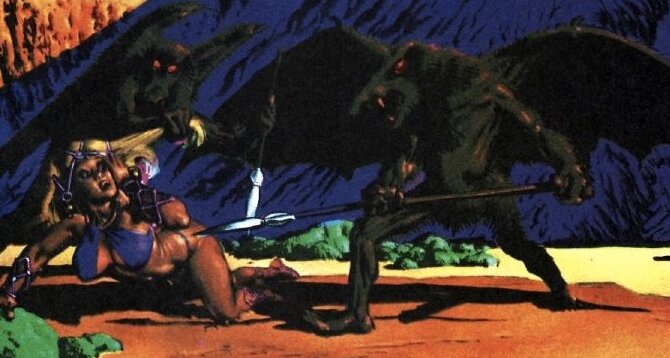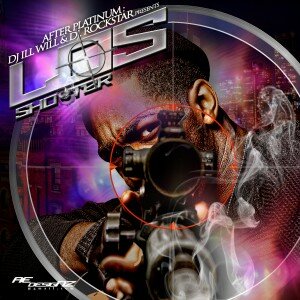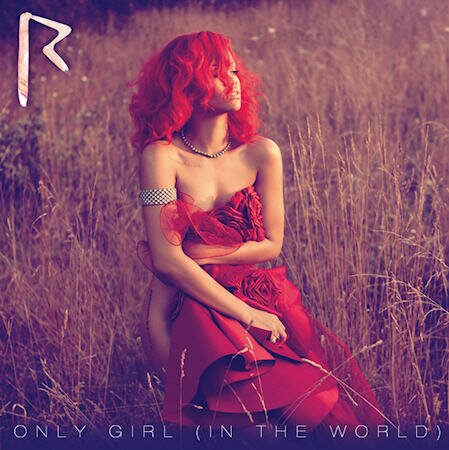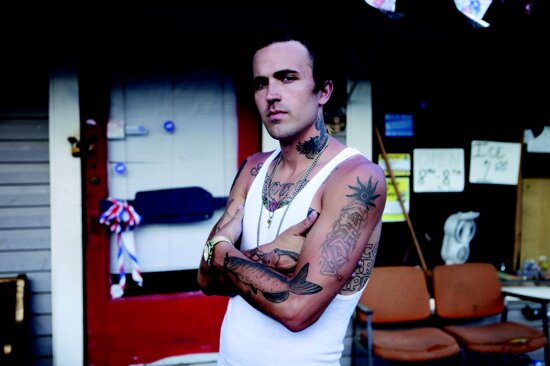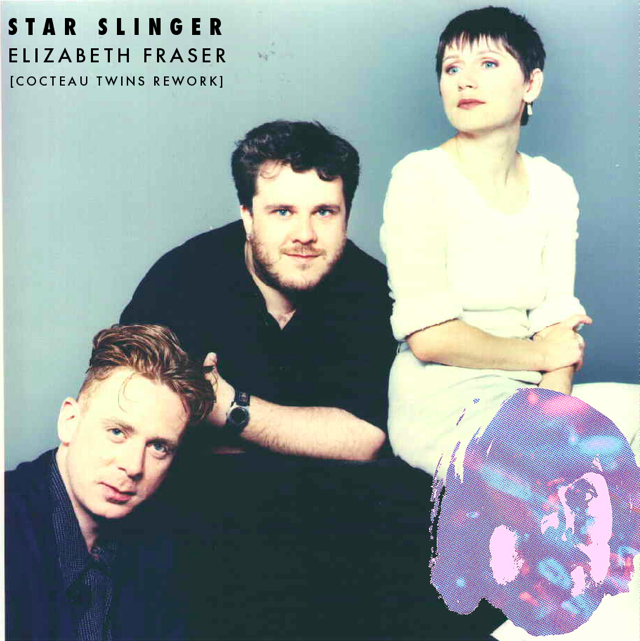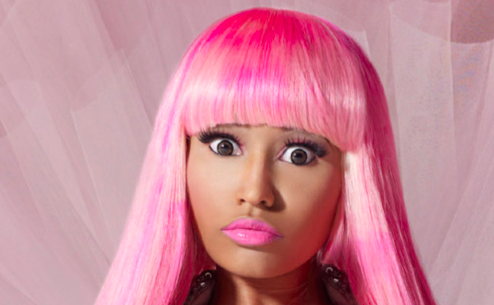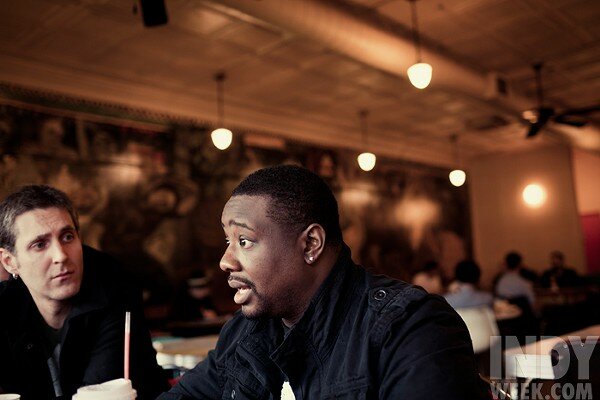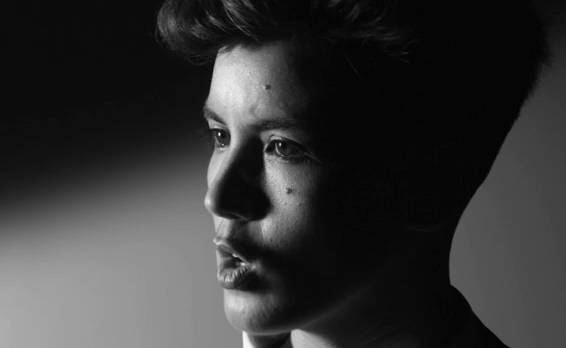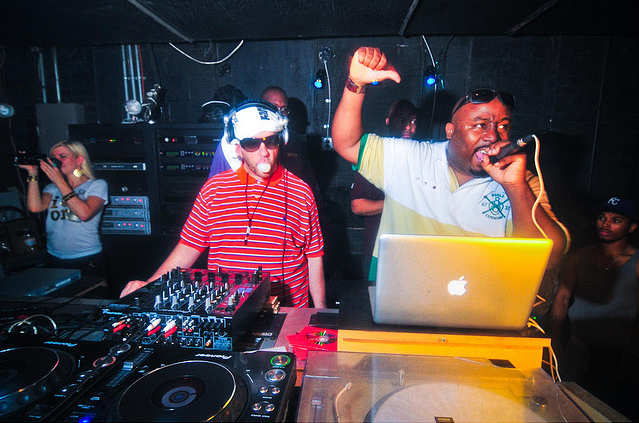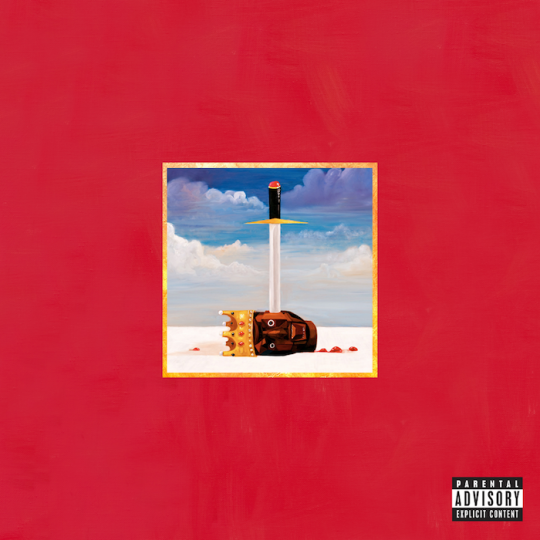“Dark Fantasy” tells listeners what My Beautiful Dark Twisted Fantasy is (a ridiculously grand rap epic), and what the album so easily could be (just another hot rap album). Sandwiched between a swelling, orchestral Mike Oldfield-anchored detour, introduced by a mock-elegant Nicki Minaj, there’s a demonic, immediate RZA track that Kanye pretty much slays. Cut all the baroque stuff off this song and you’d be left with a very hot, thrilling album opener. But that isn’t Kanye’s goal here–he’s going for something far more immersive. You’ll get some great-sounding rap, but that isn’t all you’re going to get. Sorry. There are plenty of other rappers (especially right now) that can give you just good rap. And a lot of them wouldn’t exist without Kanye West. He doesn’t have to save hip-hop or fix it. He needs to save himself.
The “Can we get much higher?” samples addresses Kanye’s insatiable desire for fame and attention and the broader, consumptive American attitude that more is better–be it drugs, fame, or money. The Oldfield sample also tells musically aware listeners that MBDTF has prog-rock ambitions. Part of prog’s appeal is it’s silly, overstuffed approach to music-making and Kanye has that in spades. Also, like a lot of those prog-rock maximalists, Kanye’s got a wily, knowing sense of humor about it all. Kanye’s detractors clown themselves when they take him completely serious. He’s aware that this album is ridiculous. He loved the G.O.O.D Friday cover art that rambled on with way too many guests and he got off on the fact that he released an Alejandro Jodorowsky-esque short film on all the major music channels…on a Saturday night.
Nicki Minaj’s intro is similarly grand and silly. She’s doing her impersonation of Tilda Swinton in Velvet Goldmine and maybe referencing David Hemmings’ narration of Rick Wakeman’s Journey To The Centre Of The Earth (don’t laugh, MBDTF is soaking in prog-rock). Her faux-British accent and the shift from “classy” to grit-teeth insanity, over top of a beat-less soundscape that whirls around in a sea of warm auto-tune (very Disney movie sonic world-building) and then abruptly cuts-off, speaks to one of Kanye’s most pervasive topics: Shit isn’t what you think it is. It might end at any moment. All that glitters is not gold.
Think of well, fairy tales themselves. In their current incarnations, thanks to Disney, they are relatively harsh but redemptive tales for kids. Often though, the source material for these tales are ugly, fucked-up stories. Dark fantasies. The real (original) story of say, “The Little Mermaid” is “far too mean” when you compare it to the 1989 animated classic: “You might think you’ve peeped the scene/You haven’t–the real one’s far too mean.” Nicki’s use of the word “scene,” and the introduction of hip-hop slang like “wack and corny” (she’s talking like a NahRight commenter), extends this sense of “you don’t know what’s actually going on” to modern day celebrity.
“Celebrity isn’t all it’s cracked up to be” is a fairly loathsome topic at this point and it made parts of Graduation obnoxious, but here Kanye’s using it as an entry-point into diagnosing a broader, more universal sickness. In the first verse of “Dark Fantasy,” Kanye portrays himself as a rube, pulled in by fame and success (“I fantasized about this back in Chicago,”) and then, he deconstructs his own verses, while he raps them. He drops clever, fun shit-talk (“you ain’t got no fuckin’ Yeezy in your Serato?”) and then explains that the shit-talk is all a shield: “Me found bravery in my bravado.” The baby-talk there is charming and suggests an awareness of his own immaturity. By the end of the first verse though, Kanye hasn’t redeemed himself. He’s surrounded himself with the indulgences of high-end fashion (Phoebe Philo) and sex (“so much head, I woke up to Sleepy Hollow”)..
Verse two returns to the same stuff, Kanye again finding “bravery in [his] bravado” via his delightfully groan-inducing punchlines and then, shifting into a series of “what now?”-type questions. He’s famous and he’s “stopped the ignorance” and “killed the enemies” and he feels just as bad–and maybe even worse. He still has “night demons.” The bridge on “Dark Fantasy” is Kanye’s nightmare: A kids-only (orphans?) seance at a shopping mall that’s devoured by some creatures from hell, amidst a blur of conspicuous consumption. Then, Kanye wakes up and he’s in Paris, one of the world’s most elegant cities. It was only a dream. He’ll get out of bed and go about his day and the fame nightmare begins.
Kanye is writing about what he knows: Being wildly successful is uglier and weirder than you can imagine. Next, he’ll write about everything and everybody else. “Gorgeous” connects his fame and recent media takedowns to institutionalized racism. On “All Of The Lights” he’s inhabiting the voice of an average joe out of control and going through a custody battle. Oddly, “Hell Of A Life” humanizes porn stars, a relatively recent cultural obsession we’re all attracted to and disgusted by in equal parts. In the end, he’s hands the album over to Gil Scott-Heron to ask “who will survive in America?” and the question is really, “will any of us survive in America?”. Realize that Oldfield sample asked, “Can we get much higher?”.
My Beautiful Dark Twisted Fantasy is a loose concept album about what it’s like to live in America, a decade into the new millennium, with everything going to shit or at least, really feeling like it’s going to shit. “Can we get much higher?” speaks to the “is America in its Rome phase?” debate that’s been going on at least since Bush sent us into a bunch of wars and helped wreck the economy. The album ends with the rhetorical, “who will survive in America?” MBDTF doesn’t have an answer to any these questions.
